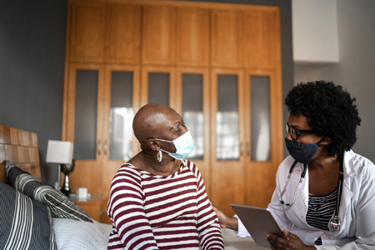Overcome Recruitment Challenges Of Black And Rural Patients

By Ed Miseta, Chief Editor, Clinical Leader

Patient recruitment for clinical trials is difficult and can cause many studies to be delayed or cancelled. Two groups that are particularly difficult to recruit are patients of color and those living in remote and rural areas of the country. In those two instances, overcoming recruitment barriers can prove to be particularly difficult.
In two separate studies, researchers at the University of Missouri School of Journalism found that posting testimonials on social media helped to recruit Black Americans and rural white men to take part in a clinical trial. The two groups are of special interest to researchers in Missouri, as access to healthcare is a problem to both groups of individuals.
Although the studies showed using social media posts with testimonials was the best way to recruit these individuals for studies, the results came with a couple twists. First, the intentions of Black Americans to join trials increased most when testimonials were shared by Black individuals and when those messages addressed psychological barriers to participation such as distrust of physicians and researchers. Second, the intentions of rural white men to join trials increased most when messages included testimonials. Messages that talked about overcoming cognitive barriers, such as lack of knowledge about the value of trials, also performed well with those patients.
A History Of Mistreatment
Although Blacks account for 13.5% of the population, in 2020 they accounted for just 8% of participants in clinical trials for FDA-approved drugs. Unfortunately, racial and ethnic minority populations experience greater rates of disease and overall poorer health than their white counterparts. The life expectancy of Black Americans is also four years shorter than for white Americans, and they are more likely to die from cardiovascular disease.
Many reasons have been offered for the lower trial participation rate of Black Americans. One is a distrust of the healthcare system and the pharmaceutical industry. This may be due in part to historical mistreatment, such as the Tuskegee syphilis study. But the mistrust of medical research goes beyond Tuskegee. A report by the NIH National Library of Medicine notes as recently as the 1990s unethical medical research involving Blacks has been conducted at academic institutions. There are also concerns about a lack of control in the research process, and Blacks tend to have less access to quality healthcare than whites.
The NIH report notes other factors include elements of study design, logistical problems, low levels of health literacy, sociocultural factors, and attitudes that hinder research participation. It notes mistrust of academic and research institutions and investigators is the most significant attitudinal barrier to research participation reported by Black Americans.
Still, a lack of understanding about what exactly happens in a clinical trial can be a reason why many Blacks opt to skip trial participation. One of the goals of the first study conducted by the University of Missouri was to design a trial that would overcome these barriers. The study involved 390 blacks between the ages of 18 and 62, and found social media posts that featured Black individuals sharing their own fears and misgivings about clinical trials had the greatest impact on the willingness of individuals to participate in a trial.
A Mistrust Of Doctors
In the second study, researchers attempted to determine what might prompt more rural white men to participate in a clinical trial. Those men have a lower life expectancy than urban men and rural and urban women. Sisi Hu, a former doctoral student at MU, notes rural white men are underrepresented in trials for conditions that include obesity, arthritis, mental illness, and pulmonary disease. Those men are also likely to have a mistrust of physicians. Those conditions are some of the top health concerns for rural residents, and the study hoped to discover how to encourage these white males to participate in trials.
The study recruited 208 adult males living in rural areas and involved social media posts regarding trials. That study found participants expressed stronger intentions to join trials after viewing social media posts that included testimonials. The reactions towards messages with testimonials were especially favorable among the men who did not trust doctors. Messages about overcoming the lack of information about trials also scored well amongst those males.
Two reports were produced from the studies. “Overcoming Black Americans’ Psychological and Cognitive Barriers to Clinical Trial Participation: Effects of News Framing and Exemplars” was published in Health Communication. “Improving Rural White Men’s Attitudes Toward Clinical Trial Messaging and Participation: Effects of Framing, Exemplars and Trust” was published in Health Education Research.
For more information: Sara Diedrich, 573-882-3243, diedrichs@missouri.edu.
